Post
A catch
Save a catch to start your fishing logbook. You will be able to to share it with the community if yo want!
A fishing trip
Post an ad to go fishing with other fishermen
Save a catch to start your fishing logbook. You will be able to to share it with the community if yo want!
Post an ad to go fishing with other fishermen
Share a thought, a question with the community
My favorite cities
×Join our 610 fishermen and our 3 cofishermen in Bledington in Gloucestershire. The fishing forecast is currently 3.6. The most caught fishes here are the chub fish, the wels catfish, the perch and the lesser spotted dogfish. Come try the most famous fishing techniques like the big game fishing, scrapped fishing, the bolognese fishing or lead techniques for soft lures to fish bass.
Our fishing forecast of Bledington indicates the best time to go fishing in this city.
The Chub fish
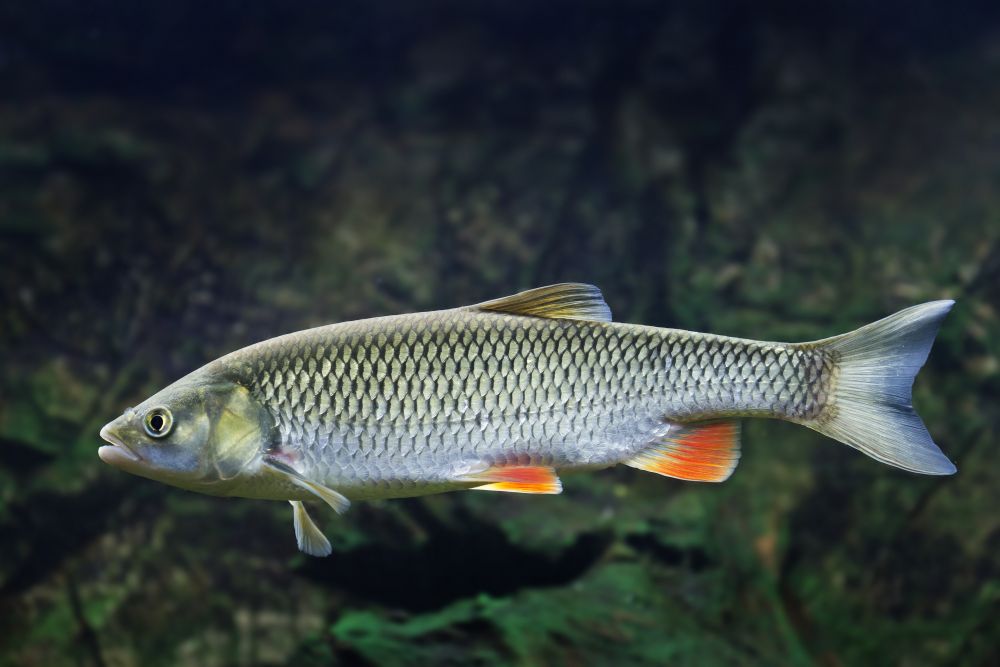
The chub fish belongs to the family of Cyprinidae. The common catch size of the chub fish varies from 15 to 30 cm, but it can reach 80 cm for a weight of 8 kg. The longevity is estimated at about ten years. The reproduction of the chub takes place between April and June. The female lays 20,000 to 100,000 eggs. It can be fished from July to Mars. The body is long and cylindrical with a terminal mouth, pointing upwards, with large lips. The big head has a flat forehead. The large, black-edged scales give it a reticulated appearance. The anal fin has a convex rear edge. The back and upper part of the head are greyish-green to brown in color; the flanks have silvery or even golden highlights; the belly is whitish. The fins are grey except for the bellies and the pale red anal fin.
The Chub fish is a famous fish you can catch in Bledington.The Wels Catfish
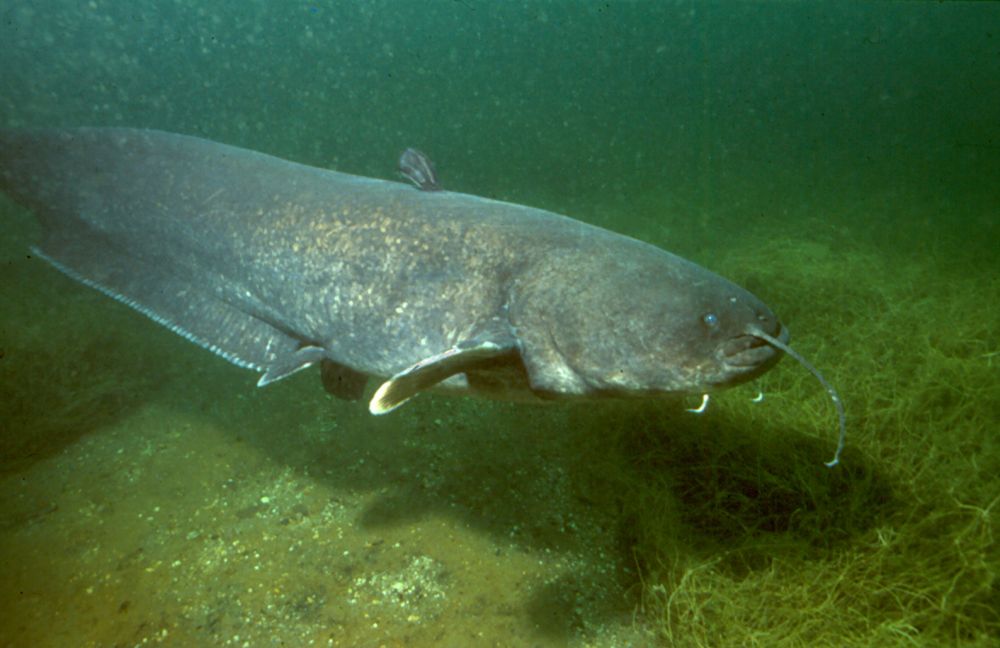
The Wels Catfish belongs to the Siluridae family. The usual size is 1 m for 10 kg but it can reach a maximum of about 5 m for a weight of about 300 kg. The maximum observed longevity is 60 years. It breeds from May to June. The female lays 20,000 to 30,000 eggs per kg of weight. It can be fished all year round. This massive species has a flat, broad head with small eyes and three pairs of barbells. Two pairs not movable on the lower jaw, one longer and movable on the upper jaw. The trunk represents about 1/3 of the animal and has the paired radiated fins and a small rudimentary dorsal fin. The belly is lighter. The posterior part of the body is laterally flattened and has a long anal fin. The tail ends in a homoceric fan-shaped caudal fin. The livery is variable and fluctuates from olive green to grey, both plain and with light spots. The skin is viscous and flake-free. The wels catfish has many small teeth.
The Wels Catfish is a famous fish you can catch in Bledington.The Perch
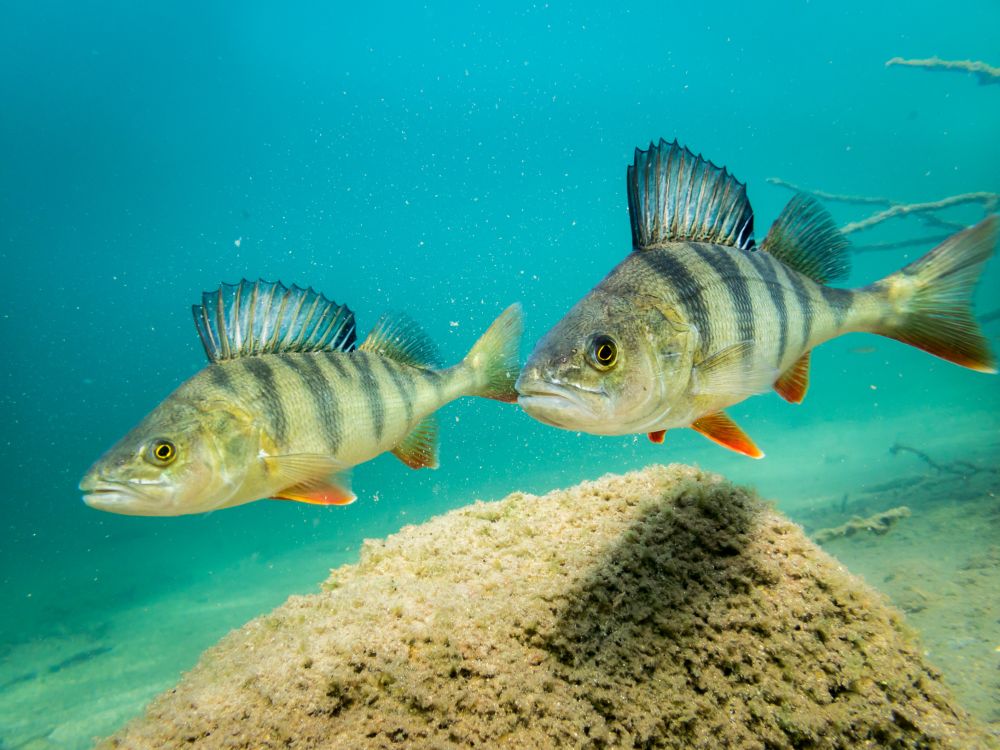
The Perch fish belongs to the Percidae Family. Its size, on average 15 to 20 cm, can reach 60 cm for a weight of 4.5 kg. Life expectancy is about 6 years (maximum 22 years). The perch spawns in April and lays between 4000 and 300,000 eggs. It is caught from June to December. Its body is stocky, high, yellow-green with broad transverse stripes; the belly is yellowish to matt white. Its ventral, anal and caudal fins are red; the anterior dorsal fin has sharp rays and a black spot on the back. Its operculum is finished by a strong thorn.
The Perch is a famous fish you can catch in Bledington.The Lesser Spotted Dogfish
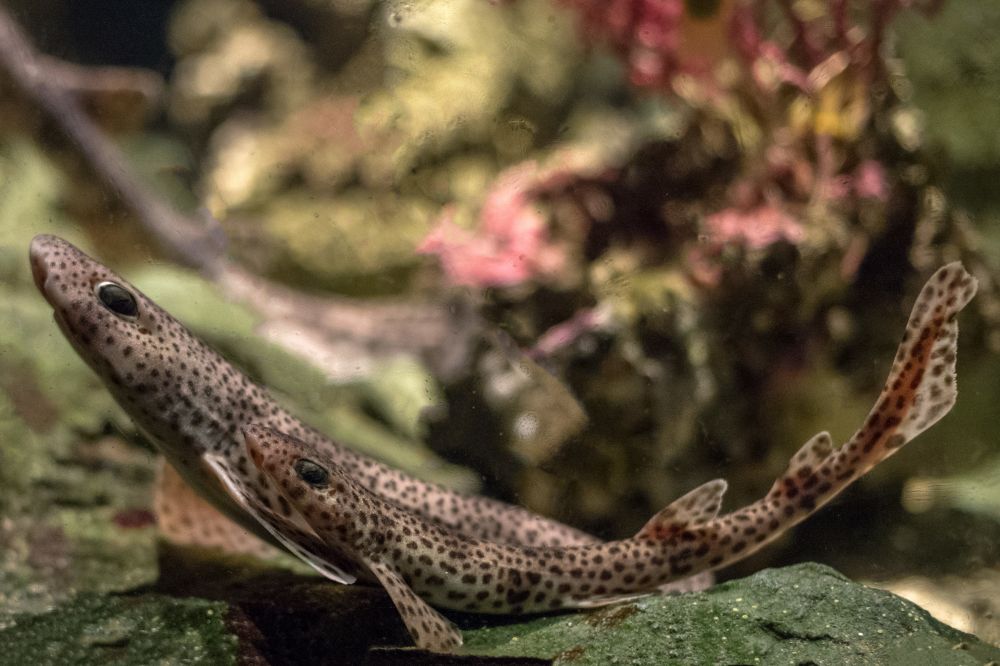
The Lesser Spotted Dogfish belongs to the Scyliorhinidae. It has a height of about 80 cm in length and a maximum weight of 5 kg. It can live up to 8 years. It breeds from November to July. The female lays about a hundred eggs. It is fished in winter. The lesser spotted dogfish is a small spotted shark with a rounded snout. The spots are small, numerous, brown to blackish-brown on a light beige to red background, the belly remains light. Five gill slits are located just behind the black and oval eyes. As with all species of the Scyliorhinidae family, the first dorsal fin D1 is located behind the pelvic fins; the second dorsal fin D2 is located just behind the anal fin. The distance between the 2 dorsal fins D1 and D2 is greater than the length of the base of the anal fin. The nasal valves are contiguous.
The Lesser Spotted Dogfish is a famous fish you can catch in Bledington.The Grayling
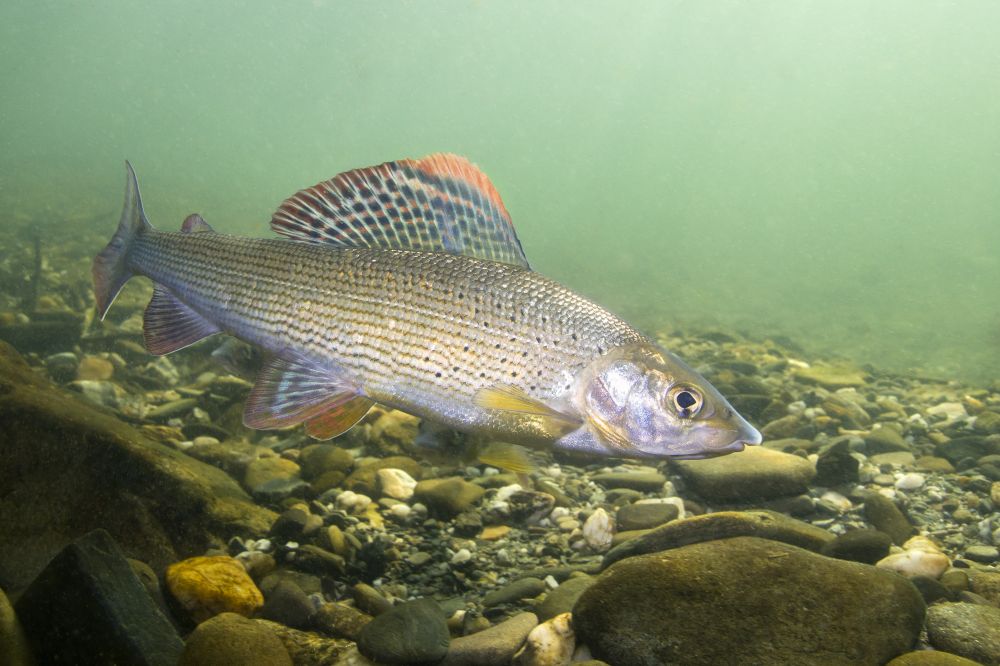
The Grayling belongs to the Salmonidae Family. The average size is 35 cm for 400 g (maximum 50 cm for 1.5 kg). Life expectancy can reach 5 years, rarely more. Breeding takes place in spring. The number of eggs laid depends on the size of the female and ranges from 600 to 8000 eggs. The fishery is open from June to December. The body, compressed laterally, is covered with large scales, some of which, pigmented, draw longitudinal streaks, highlighted with black spots. The head is small, the mouth opens downwards. The muzzle is thin, the eyes have forward pointing pupils and golden rings. The distinctive signal of the species is the long, high dorsal fin, supported by about 20 soft rays. The whole forms, over nearly a quarter of the length of the fish, an iridescent flag of violet to purple coloring, also called a vexille. The caudal peduncle is thin, surmounted by the adipose fin characteristic of Salmonids.
The Grayling is a famous fish you can catch in Bledington.Our fishing forecast of Bledington indicates the best time to go fishing in this city.
Our fishing forecast of Bledington indicates the best time to go fishing in this city.
Our fishing forecast of Bledington indicates the best time to go fishing in this city.
